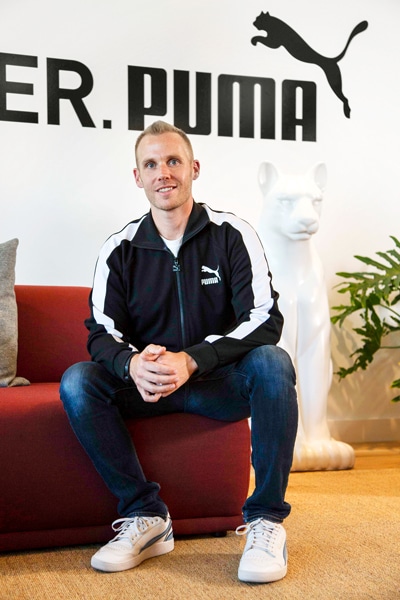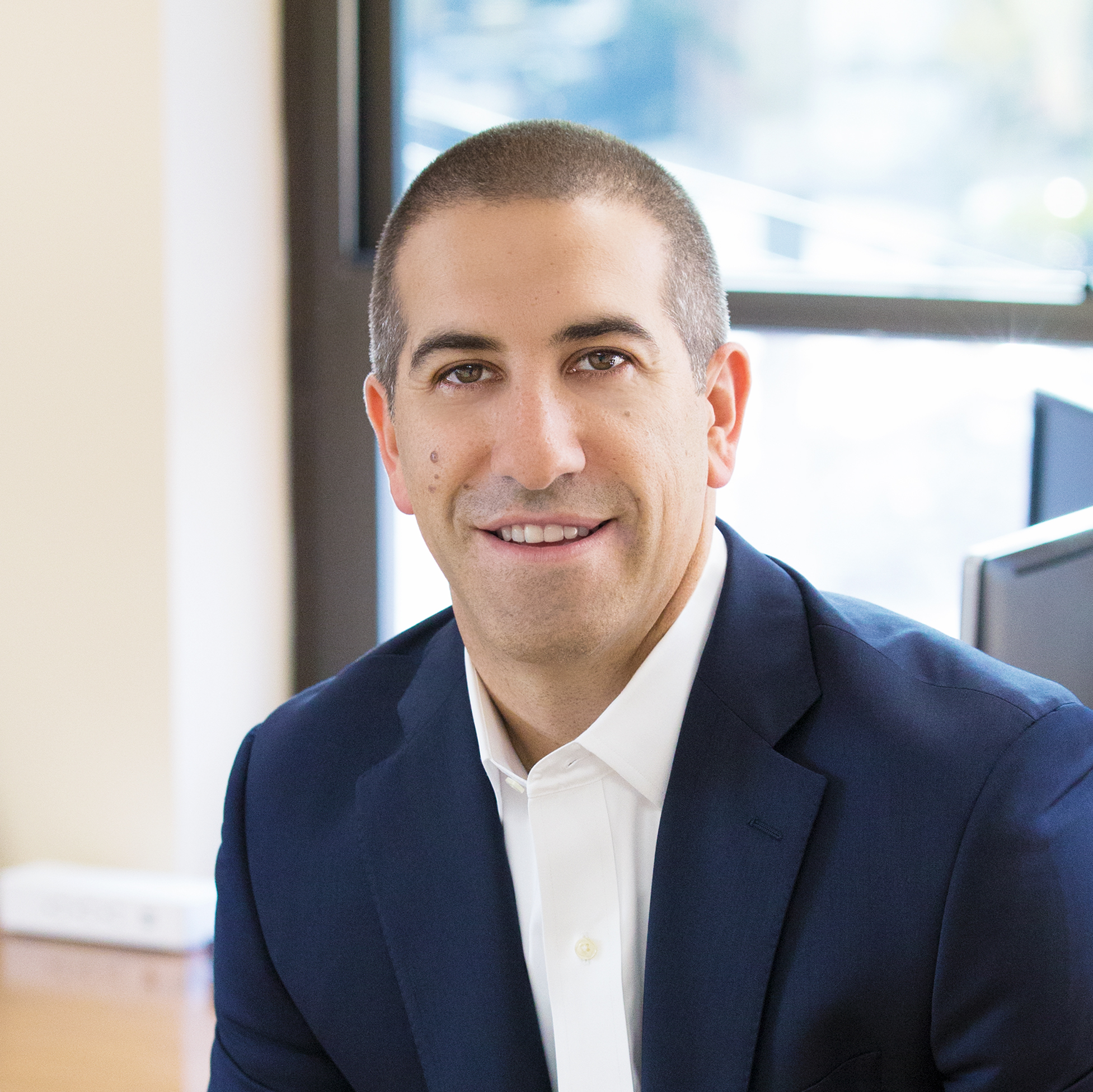To win any competition, you have to stand out from the crowd. That’s why PUMA partners with some of the fastest athletes on the planet—athletes known for their ability to jump farther, leap higher, and play harder than any other. That’s also why Hoyt (CJ) Davis III, PUMA’s assistant general counsel for sports business and legal affairs, has seen such great success across his ten-plus years at the company.
Davis knew the challenges of establishing a career within the sports space. “Getting into a career connected to sports in general is very competitive, whether it’s working for a team or on the corporate legal side,” he explains. “But if it’s something that makes you passionate about going to work, then it’s worth pursuing.”
He began his pursuit of a career in sports in college, planning out the steps he needed to take to make that career happen, learning the importance of hard work, thinking outside the box, networking, and remaining persistent in his efforts to build relationships. Those tactics led him to PUMA, which in turn laid the groundwork for his career to date.
“When I joined PUMA, I was a new attorney, so a lot of the work I did was general corporate legal work,” Davis explains. “But as time went on, I started working on more and more US sports marketing initiatives across all PUMA’s core sports categories: football [or soccer], golf, track and field, and auto racing, and now I do that work in addition to working on some of our global sports marketing related matters, like our Olympics programming, Cobra PUMA Golf [PUMA’s golf equipment business], and now basketball.”

The legal team at PUMA is relatively small, Davis notes, so everyone does some general corporate work in addition to their areas of expertise. The size of the legal team allows attorneys to develop and grow into their own specialties, and Davis’s specialty on the sports side of the business has been of particular value to the company in recent days, as PUMA has begun reentering the basketball market.
“Back in the seventies, eighties, and nineties, PUMA was one of the bigger brands in basketball,” Davis says. “We were working with stars in the basketball league, like Ralph Sampson and Walt ‘Clyde’ Frazier. Clyde was the brand’s first ever signature athlete and the first player to have his own signature shoe in the game—the ‘Clyde.’”
PUMA transitioned out of basketball in the late nineties, Davis says, but is now looking to leverage its history as it re-enters that market. “Having that strong heritage was really important for us in the relaunch,” Davis says of the company’s partnerships with legacy athletes like Frazier and Sampson. “We’ve been out of basketball for two decades, but now we’re taking that heritage and relaunching it into the modern game. We’ve come out strong signing five first-round draft picks in 2019, including DeAndre Ayton and Marvin Bagley III, and two in 2020, including RJ Barrett, in addition to a number of veteran NBA players.”
But it’s not just about recruiting basketball players as PUMA ambassadors. Modernizing PUMA’s basketball heritage requires highly creative thinking, Davis points out, especially given how crowded the basketball market is.
“At PUMA, our basketball division seeks to stand out by creating great on-court performance products, but also by connecting to other areas that resonate with consumers,” says the AGC. “For us, that means connecting with fashion culture, basketball culture, music, and all sorts of other elements that factor into in the deals we do.”
In his role, Davis has spent a great deal of time overseeing those deals—negotiating and drafting all endorsements, partnerships, and sponsorships. Open communication with the company’s marketing and business teams has been critical to those efforts, Davis says, as well as staying constantly in tune with the company’s goals and priorities. “That business alignment is crucial in helping us go from step to step and keep the business moving and adapting quickly,” he remarks.
But according to Davis, there is one more skill that has allowed him to so effectively support the company as it reintroduces itself to the basketball market. And for a sports enthusiast like him, that skill is by far the easiest—and most fun—to cultivate.
“A great part of the job is just staying up to date on who and what’s relevant in each sport, what other players, leagues and the industry are doing, and how I can use that to help the business accomplish its goals,” Davis says. “For basketball in particular, you have to have an understanding of the basketball landscape and the legal issues that go with that, from youth basketball all the way up to the NBA, and there was a learning curve for all of us as we educated ourselves on basketball.”
And even after a decade at PUMA, and an entire career in the sports space, Davis is still eager to learn more about the industry and help the company evolve. “PUMA has grown immensely since I started,” he says, “and we want to continue growing in coming years, continue building on our heritage. It’s very exciting to be a part of that.”
Nelson Mullins:
“CJ continuously assesses emerging trends and applies best practices to all PUMA transactions. He does an exceptional job of identifying and mitigating risks while remaining solution-driven, helping PUMA achieve its business objectives.”
–Jay W. Fee, Partner


